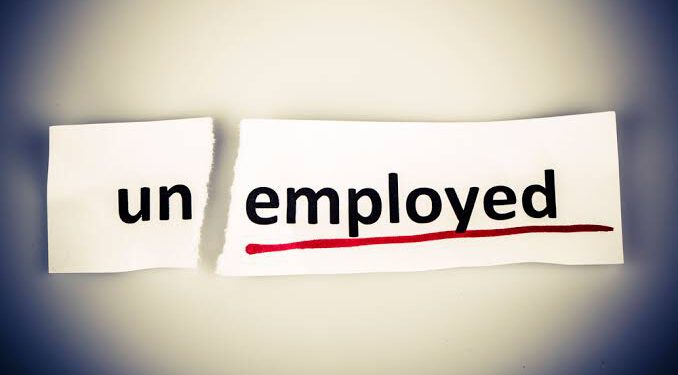Abubakar, my 25-year-old neighbour, graduated with second-class lower from the Department of English, University of Lagos. He, however, starts proper nouns in lowercase.
He has gone to more than 50 interviews since he graduated two years ago, but would not see his fault in the problem. According to www.statista.com, 33% of the population of Nigerians is without a job. Of the 33%, approximately 15% are people with advanced education.
However, inasmuch as I will admit that the government has a huge role to play in the rate of unemployment in Nigeria, some Nigerians in the unemployed percentage are in fact totally unemployable.
The scope of unemployable citizens in question in this discourse will be restricted to graduates. For Nigerians, the gap between unemployment which is the state of joblessness and unemployability which is the unsuitability of persons to get a job is not broad.
To clear your confusion and answer certain questions, the subsequent paragraphs of this article will vividly explain unemployability as one of the causes of Nigeria’s unemployment rate and proffer certain solutions to the menace.
To begin with, one major problem is that many unemployed graduates are wired to use their psychomotor abilities more than their cognitive abilities. Perhaps, one could say they are only fulfilling societal needs by attaining Western education up until tertiary education mainly because the society respects and revers educated people. I have been in contact with more than five graduates who blatantly told me they regret going to school and feel they wasted those five years of their life.
These are people who perform excellently in different vocational skills. For instance, we probably should start paying attention to the relevance and usefulness of barbers and, hairdressers and engineers alike in the society.
This is because a significant number of graduates out there would definitely function better as artisans than they would as white-collar job workers. This is where proper counselling and guidance come into play. It is rare these days to see a secondary school certificate who intends to learn a trade and perfect his or her doings in it without feeling the societal need to attend a school. Hence, we rarely remember that school is not for everyone or I will rather say we are not all destined to work with our certificates.
Many people feel they are going to higher institutions to erase poverty in their family forgetting that that is actually not the main purpose of education. Also, some people attain tertiary education to succeed in the path of their parents’ failures. There is a need to educate people through counselling and guidance on what can come out of them pursuing their best skills if they have checked themselves and know school is not for them.
They should be made to understand that by pursuing their dreams and perfecting their skills, they can also attain heights. Is someone not President Muhammadu Buhari’s mechanic?
What is more, there is also a need for people to understand that what one finds oneself doing, one should do it well. It is one thing to forfeit your skills to attend a higher institution, it is another thing to take responsibility for such a decision and achieve success in such an endeavour. At least, many people are not pressured into taking these decisions. I, for one person, didn’t intend to study English.
When I however found myself in such a situation, I knew there might be something in it for me and today, I am not regretting taking such a decision. It is imperative to understand that if one finds oneself anywhere, one should understand that there is a reason for everything. For instance, for you to have found yourself in a university, it is necessary to make the most of it. Also, taking responsibility whenever one finds oneself in an unfavourable situation or setting is a key attribute to behold.
If one applies to study Medicine and Surgery and one finds oneself in Biochemistry, one should give one’s all and expect the best results. It is not enough to go to school for years and not let the school go through one. Understand the basics, you will be able to defend that certificate to a large extent to guarantee employability.
To conclude this piece, one can then proffer certain solutions to effect changes and to reduce the number of unemployable graduates out there. For a start, our society needs to appreciate vocational skills more than they do presently. Also, as said earlier, proper counselling and guidance should be put in place for youths to guide them in choosing a career, especially after one finishes secondary school.
Most importantly, the government and the authority of our respective institutions need to ensure a proper learning environment is established for students. If we have enough facilities and personnel with approximately 30 students in a class with a lecturer, I am sure finding out a student who cannot distinguish between uppercase and lowercase just like my friend, Abubakar will be made easy. All in all, young people need to start taking responsibility and stop making excuses.
•Tadagbe Samuel Ajoseh is a 400 level student of the Department of English, Faculty of Arts, Lagos State University.















